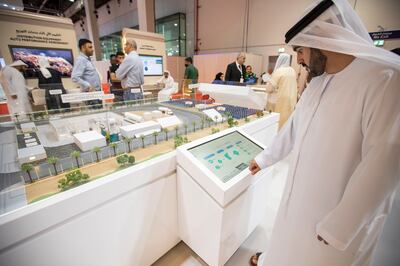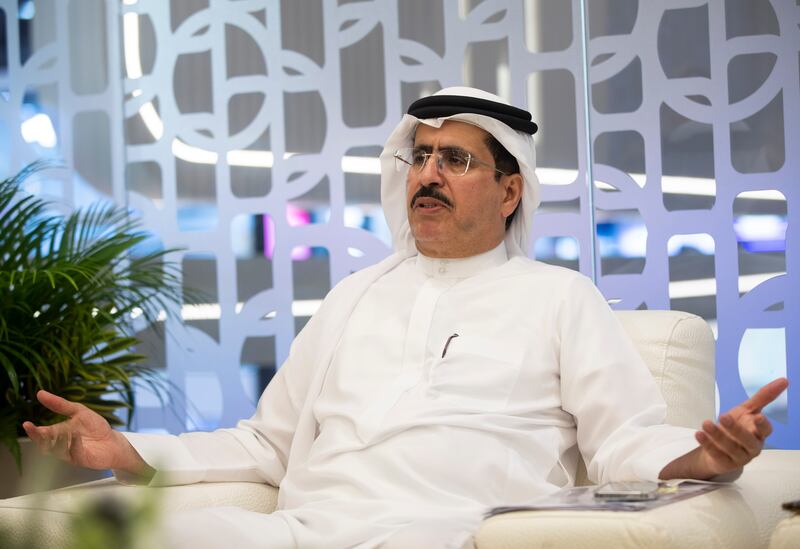The Dubai Electricity and Water Authority is planning to float two tenders for independent power projects (IPPs) by early 2023 as it seeks to boost the emirate's energy and water portfolio.
The tenders will be for a reverse osmosis desalination plant with a capacity of 100 million gallons per day, with an option to increase it to 180 million gallons, as well as a solar photovoltaic plant with a capacity of 900 megawatts, Saeed Al Tayer, managing director and chief executive of Dewa, said at the Wetex event in Dubai on Tuesday.
Dewa's future projects will primarily rely on private developers for investments with the utility investing in equity, said Mr Al Tayer, who did not disclose the value of the planned tenders.
“An IPP is the most economical and most reliable for us because you will have the latest technology and you will have a power purchase agreement for the next 25 years,” he said.
The utility, however, will “have to maintain the efficiency of the plants”, he added.
Dewa is also banking on public-private partnerships to support its operations.
PPPs are seen to be a “vital mechanism” to help governments fund investments and bring technology, innovation and efficiency, which in turn can improve performance and financial sustainability, said Fady Juez, managing director of Metito, an alternative energy management solutions company.
“A PPP project is one of the most efficient and sustainable ways to implement these type of large infrastructure projects because we reach an alignment of interest among all parties involved and everybody works together,” he said.
Dewa is also focusing on boosting the production of clean energy in the emirate.
Dubai is ahead of its carbon emission reduction goals under the Dubai Clean Energy Strategy 2050, which seeks to ensure that 100 per cent of the emirate's power production capacity is from clean energy sources by 2050, Mr Al Tayer said.
The emirate was able to reduce its carbon emissions by 21 per cent in 2021, in line with its ambitions to develop a low-carbon economy, the Dubai Supreme Council of Energy said earlier this month.
At present, about 12 per cent of Dubai's energy mix comes from clean sources, Mr Al Tayer said. The emirate plans to raise that figure to 14 per cent by the end of 2022.
“We are much better than we planned. But we have a strategy, and we are aligned with this. By 2030, we should have about 25 per cent clean energy,” Mr Al Tayer said.
Dewa in April confirmed it will be investing Dh40 billion ($11bn) in capital expenditure over the next five years to power its renewable energy portfolio, shortly after it listed on the Dubai Financial Market.

The utility will earmark Dh16bn to boost its water and electricity network, Dh12bn on existing IPP and Dh3bn on district cooling services, it said at the time.
The remaining amount will complement various existing projects, especially smart systems and infrastructure, it said.
Mr Al Tayer also said that hydrogen energy is the “right technology” to support Dubai's energy needs in the future, but would take some time to become mainstream due to costs.
Hydrogen is poised to match the efficiency of solar power, which the emirate has been investing heavily in as part of its plans to diversify the energy mix, he said.
“It was like solar power: 15 years ago prices were very high, about Dh0.50 per kilowatt, but now it's just about $0.016 [Dh0.073] per kilowatt. We hope that hydrogen will come in this direction,” he told The National.
Dewa's projects have been able to significantly cut operational costs, but there are no immediate plans to reduce tariffs on consumers, with Mr Al Tayer pointing out that the utility “did not increase prices for the past 15 years”.







